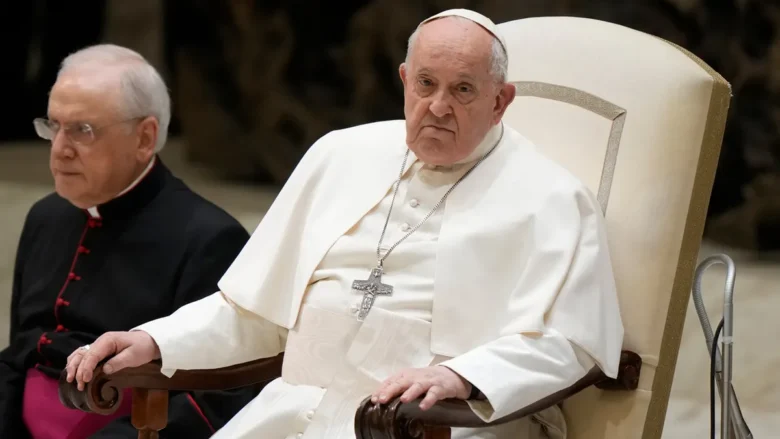In a world where the conversation about the existence of extraterrestrial life often remains in the realm of science fiction, Pope Francis recently sparked a thought-provoking discourse by expressing his willingness to baptize aliens. His profound statement, delivered during a homily dedicated to acceptance and inclusion, has reverberated across the globe, challenging traditional notions of religious boundaries and prompting reflection on the expansiveness of divine grace.
During his homily, Pope Francis invoked a biblical narrative highlighting the conversion of the first pagans to Christianity, emphasizing the universal message of the Church as one of “open doors.” Drawing parallels between historical instances of religious exclusion and the hypothetical scenario of encountering alien life, the Pontiff posed a poignant question: “Who are we to close doors?”
Addressing the incredulity that such a scenario may evoke, Pope Francis humorously depicted Martians—complete with green skin, elongated noses, and large ears—emphasizing the universality of his message. By extending the principle of acceptance to include even the most unimaginable circumstances, the Pope underscored the fundamental ethos of Christianity as one of boundless compassion and hospitality.
The Pope’s assertion resonates deeply with the core teachings of Christianity, which emphasize the unconditional love and acceptance of all God’s creatures. Throughout history, the Church has grappled with the tension between tradition and innovation, confronting challenges to entrenched beliefs with humility and openness. Pope Francis’ willingness to entertain the notion of baptizing aliens exemplifies his commitment to embracing the evolving landscape of human understanding while remaining rooted in the timeless principles of faith.
Moreover, Pope Francis’ declaration serves as a reminder of the Church’s responsibility to adapt to the changing realities of the world. In an age marked by rapid scientific advancement and exploration, the possibility of encountering life beyond Earth is no longer relegated to the realm of speculation. As humanity ventures further into the cosmos, the Church must confront ethical and theological questions that transcend terrestrial boundaries, reaffirming its relevance in an increasingly interconnected universe.
While some may view Pope Francis’ statement as a departure from traditional doctrine, it is consistent with the Church’s longstanding tradition of engaging with contemporary issues with discernment and compassion. The Pope’s predecessor, Pope Benedict XVI, similarly acknowledged the theoretical possibility of baptizing extraterrestrial beings, affirming the sanctity of all sentient life as endowed with a divine spark.
Ultimately, Pope Francis’ message transcends the confines of religious dogma, inviting believers and non-believers alike to contemplate the boundless nature of divine grace. In a world marked by division and discord, his vision of a Church that embraces all beings, terrestrial or otherwise, offers a beacon of hope and reconciliation.
As we ponder the implications of Pope Francis’ remarkable statement, we are reminded of the words of Jesus Christ, who beckoned his followers to welcome the stranger and embrace the marginalized. In extending the hand of fellowship to hypothetical aliens, Pope Francis embodies the spirit of inclusivity and compassion that lies at the heart of the Christian faith. Truly, in the vast expanse of the cosmos, the message of love knows no bounds.


